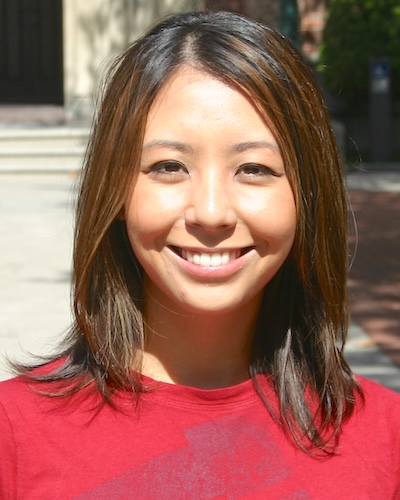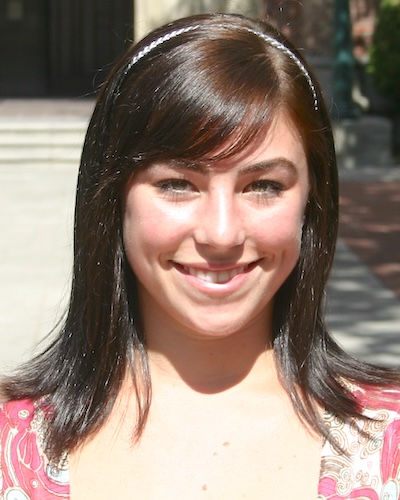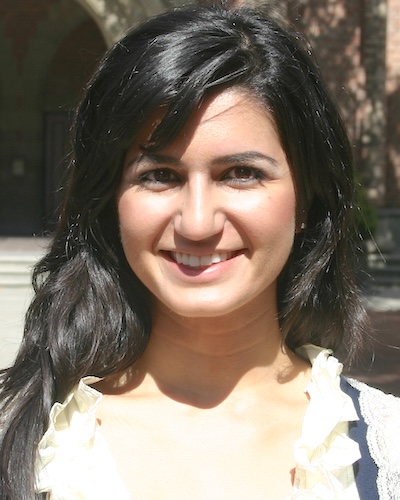Student Blog

Wrapping up the End of the Program ⟩
April 20, 2011, by Carissa
Time flies by so fast! I can’t believe that next week will be our last week of classes. Looking back at the semester, I feel that so much has happened and so much is still happening. My lifestyle redesign course has really helped me to work on balancing my personal routine and creating healthier habits. The results have been maintained for the past few months . . . I hope I can continue it outside of the structure of my school schedule! While experiencing this class as a client and student, I also learned many professional skills. Last week, I successfully held my first structured group on how to create a healthy workspace for optimal functioning. With regards to my research classes, I have been able to learn so much about creating an evidence-based practice. In my qualitative research course, I am currently finishing a group project where we interviewed several seniors who have experienced spousal loss. We were able to gain insight into their lives with their spouses, as well as their current lives in relation to their experience of occupation. I laughed and cried through the in-depth stories provided in the interviews. This is one amazing thing about occupational therapy: getting the chance to really get to know our clients and learn about the things that really matter to them. Also, in the process of learning about others, I have learned so much about myself. Our program has worked to build me as a professional and has also guided me into a greater understanding of myself. I am so thankful for the personal and professional skills that I will carry with me into my career and for the rest of my life.
⋯

Be Active and Be Happy ⟩
April 17, 2011, by Austen
As you may already know, running is part of my daily routine. I roll out of bed every morning and get outside for a little jog, rain or shine. It wakes me up, gives me energy, and clears my mind. Days without a jog in the morning just are not the same. I feel lethargic and lazy, I do not eat as healthy, and I am not as alert and energetic. I had to take some time off from running last week, and I realized the negative effects not exercising has on my lifestyle.
I woke up Tuesday morning and set out on my typical loop around campus. Around one mile in, both of my legs started cramping. My shins felt like they could not relax and my calves were tight. It was so uncomfortable that I could barely run 2 miles, when my daily mileage usually reaches 4. After jogging/walking the rest of the way home, I noticed my left knee was stiff and swelling. I have had meniscus repair surgery done on that knee, but it usually does not act up when I run. Something was up, but I could not figure out what the issue was.
I got up Wednesday morning and tried again. No luck. Leg cramps and tightness. At that point I gave up and decided to take a couple days off. During those 2 days, I noticed a huge change in what my lifestyle is like without exercise. It is much unhealthier in all aspects. I eat more, I lay around more, I watch more TV, and it just feels terrible! There is a physical feeling inside that I do not like, it is hard to explain. But, I realized how exercise affects me both physically and mentally. It gives me more energy and makes me a happier person in general. It makes me feel alive and well. There are so many things about exercise that make me feel good that it will need to continue to be a daily activity throughout my life. Interesting how much you learn about the importance of something when it is taken away, right?
I had a sneaking suspicion that my leg issues were related to old running shoes. So during those couple days off, I bought some new ones. I tried them out yesterday on a light jog, and it made a huge difference! I was worried I was having muscular or skeletal problems, but I do not think that is case anymore. And yesterday was a great day after that run. I felt rejuvenated, I wanted to be outside, I felt alive. And my body craved nutritious and healthy meals, which always makes me feel better. I love running! Even though it is not always easy and can be boring (especially running around South Central LA), it feels so good once you are done.
Go be active! It feels great! 😊
⋯

Engage ⟩
March 27, 2011, by Austen
Every Thursday evening, the OT house hosts a weekly program called Engage. We pick up kids in the neighborhood, bring them back to the OT House, help them with their homework, engage in a group activity, eat dinner together, then take the kids home. It is such a fun and rewarding experience right down the hall from me!
I have always loved giving back to the community. Feeling part of it, learning from it, improving it, making a difference. Engage has been my weekly contribution. However, it is not just to the community, but to the lives of those children. I love being part of the group of OT students who serve as mentors and friends, promoting the importance of doing well in school, setting goals, and working hard. I truly enjoy being a role model and setting a positive example for them to look up to. In this day and age, there are so many distractions that can get kids in trouble. Engage is a way to help keep focus and priorities among our youth, keeping them excited about school and their futures.
My favorite activity we have done so far was planting vegetables and herbs in the large planting boxes on our patio at the OT House. The kids had a great time organizing the planters, spacing out the seeds, placing the seeds in the soil, and labeling each row. As the weeks have gone by, the veggies and herbs have grown so much that the kids get to see the results of something they did together. That was a great activity, promoting team work, collaboration, community building, taking turns, and sustainability.
As the school year starts winding down, we have just a few weeks left of Engage. Since I will not be here next year, it will be very sad to have to say goodbye to the kids that come every week who I have developed relationships with. It has been such a joy watching them grow over this past year, and I know they will continue to grow up into wonderful people. I just hope they have gotten as much out of the program as I have.
⋯

Electives! ⟩
March 2, 2011, by Helen
Graduation is quickly approaching . . .
During the last semester of the program, you are to take eight units of electives. Last night was our dysphagia final. 😊 Dyshpagia was an eight week, 2 unit elective I took this semester and I LOVED it! This dysphagia elective counts towards your advanced practice certification, if you so choose to pursue that within the next five years. As I was studying for the final exam, I realized how much I have learned in only the last eight weeks. Another elective I am taking concurrently is at University Hospital, where I am able to gain experience in both physical disabiltiies and mental health. As we’ve been seeing patients this semester at the hospital, I’ve been able to feel the difference in my knowledge of dysphagia on my interactions with patients. I am able to notice more as we do room visits about the quality of the patient’s voice, eating habits, posture, etc. While an eight week course may seem short and very intense, I have learned an incredible amount of information and am very grateful for having taken the course.
I am also taking a Sensory Integration elective that is four units which also works towards certification in Sensory Integration. While I am intending to work with adults in the future, Sensory Integration is a topic that impacts many populations and knowledge of Sensory Integration techniques can be beneficial in any setting. This past weekend, I attended a conference organized by Pediatric Therapy Network on Sensory Integration practices and it was great to see current research that is being done in the field and see some of our professors presenting. Having our coursework intertwine with our fieldworks and to attend conferences seeing how what we are learning is being implemented in research is my favorite part of this OT program. I enjoy this aspect of our graduate program because it really provides a sense of how we can personally impact current practice and research.
I have really enjoyed the electives I have taken this semester and really feel like I’ve gained so much insight into specific practice areas. As graduation is quickly approaching, I realize more and more how much we have learned in such little time!
⋯

A chance to be the client and clinician ⟩
February 23, 2011, by Austen
One of the electives I chose to take this semester is Lifestyle Redesign. This class is taught by Dr. Camille Dieterle of the USC Faculty Practice for Lifestyle Redesign. Some of the topics we are learning about include the foundation of this practice area, the populations that benefit, the programs offered at the USC Faculty Practice, ways to develop programs and modules, and methods for helping people establish a healthier lifestyle.
A large portion of the class includes role-playing with a partner, taking turns playing the parts of the client and the clinician. We work in our “diads” to practice self-reflection and analysis, goal-setting, problem solving, and solution generation on each other. While one person acts as the client and identifies complaints, areas for improvement, things they would like to change, and/or what their goals are, the other person acts as the clinician, helping identify outcomes to work towards, possible solutions to get there, and ultimately collaboratively establishing an action plan with the client. This role-playing aspect of the class has been the most valuable to me so far. I am learning to communicate effectively in the clinician role, asking open-ended questions, avoiding judgement, and using non-directive comments. It is very challenging to not give advice when that may be what someone is looking for, but we are learning more effective ways of empowering the client so that they can reach their own solutions.
Not only am I learning skills I will use in the workplace next year, but I am also getting a lot out of being the client during our one-on-one sessions. I have learned a lot about myself, what is bothering me that I may not have been aware of, what I want, and what I want to change. It has been a great opportunity for self analysis and reflection, allowing me to identify aspects of my life that could be improved. In essence, it has been like free therapy. What a bonus!
This class has already equipped me with effective communication skills that I will be able to use in practice, no matter what setting. I have many more “tools” to add to my bag of tricks as a soon-to-be clinician, which makes me feel more confident and excited. When looking at the elective courses available, I highly recommend this one!
⋯





